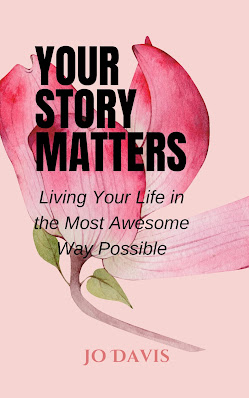Chapter 32
What is a Channel?
It's a ravine, a ditch, or a device through which water flows, right?
Or a person who represents another and appears to speak for them.
One night, a group from The World Healing Center gathered at someone's house. There we were, sprawled about on the floor, heads on people's laps, some sitting lotus-style, all of us watching the recording of a channel called Ramtha.
When I saw J.Z. Knight channeling a warrior from 35,000 years ago, I thought it was the best show going. I had to investigate.
After my World Healing Center experience, I declared I wanted my next teacher to be a master, and for a while, I thought Ramtha was—at least, I was giving him a try.
I attended many retreats, and eventually, Ramtha formed his attendees into a school. I always had doubts about it. Was he/she for real? Or was she an exceptionally verbal person who could spout spiritual concepts and tell us she cared about our immortal soul?
Being told that if I quit the school, I would be standing alongside the road with dust on my eyelashes while watching the other students march ahead didn't bode well with me.
I quit the school.
Even though I declared myself my own master after the Sai Baba experience, it took me a long while to integrate that belief.
A significant part of the Ramtha experience was when a group of women started a weekly meeting where we shared our feelings and what it was like to have a spiritual life. We read and spoke of science, what new or unique was happening, and we liked each other.
As a result, two women and I decided to leave the school and give ourselves a graduation gift. After reading about an Indian woman called Mother Meera who lived in Germany, we decided to visit her. (Frequent flyer miles to the rescue.)
So, we three flew to Germany and, in the evenings for two days, we sat in darshan with the silent guru called Mother Meera. She was a beautiful young woman dressed in a brilliant orange sari who didn't speak while in the room.
How does one tell if the "master" is fully realized?
Beats me.
And really, there should be no separation between the master and the servant. For you never know who the master is. You could walk down the street and pass one without knowing it.
It was fascinating that she had a metal gate with a peacock embossed in it.But then peacocks are often displayed in Indian art.
There must have been 100 people in the room, on chairs or cushions. One by one, we went up to her, knelled at her feet while she touched our heads, and supposedly removed tangles from our brains.
Her presence and the room's ambiance were so silent it felt like swimming in warm Jello. No one wiggled, coughed, or cleared their throat. I left the house in a warm bubble and thought I would never talk again.
That was the experience. And I'm talking.
After visiting Mother Meera, I was appointed the designated driver as we three toured Germany. The Autobahn taught me to use the rear view mirror as much as watching the road ahead. Those Mercedes, BMW, and Porsche drivers will bump your rear end if you don't drive fast enough or are not over in the right hand and lane.
I had a problem while in the right hand lane, though. I would suddenly find that we were off the Autobahn and would have to circle around to get back on. I never figured that one out. I learned that "Ausfahrt" means exit, and a sign with a straight line means to stop or don't go in there. I drove through a street that was so narrow that we could pick the flowers displayed outside a shop from the car window—but didn’t.
One evening meal recommended by our B&B host was a restaurant above a horse arena. We had our dinner, exquisite white wine, and stunning fresh salad greens. (I don't know how they do it, but Germany had the best salad greens.) Our entertainment was watching a girl ride her horse in the arena below. The host must have seen me coming.
After walking the path built into the wall surrounding the medieval city of Rottenburg, we entered a restaurant where Sue suddenly said, "Hi Steve."
Steve Reeves was sitting at one of the tables, reworking one of his travel books. We were using one of his books to find Zimmer Frees—B&B homes that would rent for the night.
The owners of various homes would place a sign in their window, "Zimmer Free," which meant a room was available. So, you could simply drive into a town and look for the windows. Everything turned out great—down comforters and breakfasts served--usually similar to the others: a boiled egg in an egg cup, cold cuts of meat, bread or muffins, coffee, or tea.
One house, however, looked as though it was taken from the set of The Addams Family TV show. Upon knocking on the door, it opened to a c-r-e-a-k. We looked at each other, beat feet out of there, dove into the car, and broke into a laughing fit.
We skipped that house.
We drove into Salzburg, Austria, to visit the location for The Sound of Music, and saw the famous Gazebo where two romantic scenes from the movie were filmed. The first scene was of the romantic dance of young Liesi and Rolfe. The second was where Captain von Trapp gave Maria that long-awaited kiss.
When I looked up the Gazebo on the Internet, I found that filming those two scenes was wrought with trouble. In the dance scene, Liesi leaped upon a bench, slipped, and crashed through one of the glass windows. She wasn't severely injured except for a sprained ankle. She finished the dance on medication, a wrapped ankle, with added stockings to cover the bandage. If you look closely you will see that one leg is larger than the other.
When Captain Von Trapp was about to kiss Maria, the lighting in the Gazebo farted.
Thus began a laughing jag from which they never recovered.
Julie Andrews said that every time she and Christopher Plummer were about an inch from each other's faces, the lighting would give a raspberry, they would begin laughing, and fail to complete the scene.
The kiss was added later in silhouette.
It's a good thing they don't make pretzels in my hometown like the ones in Germany; I had one at every opportunity.
Those pretzels were about a foot in diameter. That shiny, coarse, salted dough had been twisted so that the top was thin, and the bottom was thick at the twist, bread-like. That way, you had crispy and soft. Just writing about them makes my mouth water.
Much to our surprise, we three agreed that the pizza in Germany was the best we had ever tasted. And eating leftover cold pizza for breakfast on a hillside in Germany is an experience I wish for everybody. (Maybe their dough is better there. That would help account for the excellent pretzels and pizza crust.
When my two friends and I were preparing to leave Germany, Maryanne, one of the friends, and I took the rental car to the Frankfort garage under the terminal while Sue guarded our luggage. A man in a white jacket said he was accepting car returns, so I dropped the key into his open palm. But as I began to walk away, I had a foreboding feeling. It didn't seem right. The man was sweating and seemed to be, as my mother would say, "Three sheets to the wind." Meaning a little inebriated.
He was trying to steal our car!
I turned around and said to him, "I left something in the car. Can I have the key to go get it?" The moment I had that key in my hot little fist, Maryanne and I began to run as though being chases by a wolf. We stopped at the car rental kiosk and breathlessly rattled out what had happened. She confirmed that, indeed, he was trying to steal the car.
Thank you, God. Thank you, thank you. I'm grateful to this day. What would have happened if he had stolen the car? Would I have to pay for it?

Warrior Women Unite. We can Keep Trump out of the White House.
Remember what a wise matriarchal mare does with a bully? She drives them out of the herd until they shape up. (Out of the herd is the worst punishment for a horse.) Once they have learned their lesson, they get a lot of love and wither scratching.
That's a momma.
Many of us are mommas, and those who aren't are imbibed with care.
Does money win elections?
I thought votes did.
Are you so undecided about what to do that you are swayed by an ad each day?
Throw money into the campaign and think that you will win it. More ads, more name-calling, more exposure, more bluster, more rhetoric. The media gets richer, the people get poorer, and the leopard doesn't change his spots.
Haven't you made up your mind already?
Don't we have a determination that doesn't rely on money?
Social media drives people. Influencers, they call them. It's free. We have voices, we have pens, we have lofty visions of a greater tomorrow. We have determination and belief on our side. Our visions are ahead, not back to lawless, gunslinger days where the little woman was kept barefoot, pregnant, uneducated, and subservient.
Women, we can win this election.
Women voters outnumber men by about one million. And we have many men behind us who also think letting a criminal slip through the cracks is criminal. Do ethics and morality matter anymore? Are blatant lies normal?
Someone asked the anthropologist Margaret Mead when civilization came into being. She said, "A femur bone."
The day anthropologists found a healed previously broken femur bone in a skeleton marked civilization's beginning.
It used to be that if someone broke a bone, they were lion fodder. If you found a healed femur bone in a skeleton, someone cared for that person and nursed them back to health.
Are we worth saving?
I hope so
The animals and the earth depend on us. Let's not screw it up.
“If you need time to chill out, refresh, and just sit quietly with what has transpired the past 24 hours, you aren't alone ...
“All I know right now is this: Vice President Harris has my full support.
“I will be looking for the rainbow after this angry storm we’ve been through, but right now I am going to just sit with all that has happened, and let things be.
“I’ll pivot in my own way, and on my own good time, thank you.
—(D Earl Stephens is the author of “Toxic Tales: A Caustic Collection of Donald J. Trump’s Very Important Letters” and finished up a 30-year career in journalism as the Managing Editor of Stars and Stripes. Follow @EarlofEnough and on his website.)





